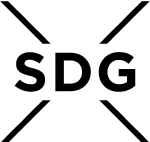Access to energy (electricity, fuel, cooking fuel) is a key driver for development and progress for people across the world. There have been significant improvements in access to energy over the years.
However, these gains have not been equally shared and groups with certain identities have seen fairly little progress. For instance, in India, access to energy and electrification is mediated by caste and gender. Dalit households are 15 percentage points less likely to access electrification as compared to non-Dalit households with similar income and geographical proximity. Cooking gas (LPG) is available to just 17% of Dalit households and 9% of Adivasi households compared to a much higher proportion for the overall population.
Women, of course, bear a disproportionate burden having to fetch firewood and being exposed to fumes in the absence of modern electrification or cooking fuels.
This panel will focus on the following questions:
- What do we know about the nature and extent of identity-linked exclusion in energy access across the world?
- Which communities are most at risk?
- What are the different kinds of actions that are needed to address this?
- What role do different players in global development need to play more actively to address this issue?
- What is the role that data and measurement play and how can we improve our understanding of this issue?
- What are some innovations or successful examples we can learn from?
Moderator for the session: Kanishka Bhattacharya (Associate Partner, Dalberg Advisors)
Speakers:
- Dr Namrata Chindarkar (Associate Professor, JSW School of Public Policy, Indian Institute of Management, Ahmedabad)

